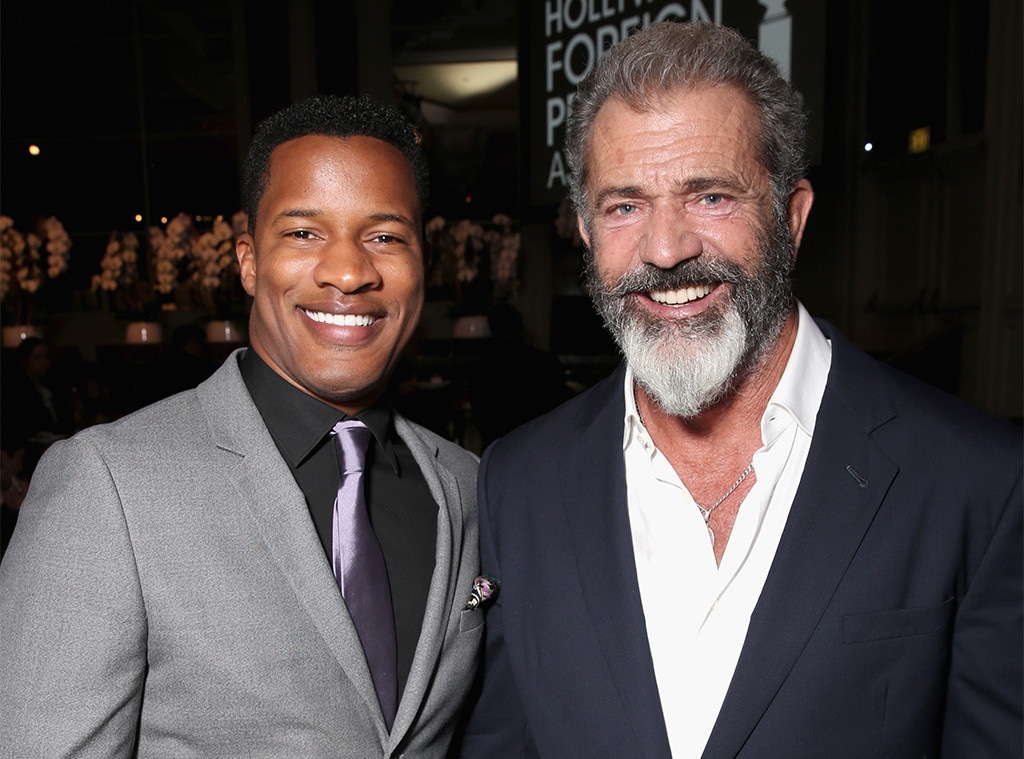 Todd Williamson/Getty Images
Todd Williamson/Getty ImagesShould a filmmaker's work be separated from his personal life?
Mel Gibson says yes.
The Hacksaw Ridge director, whose own past has been marred by controversy, participated in The Hollywood Reporter's Director Roundtable and defended Nate Parker. Despite The Birth of a Nation drumming up a ton of buzz after debuting at the Sundance Film Festival—it also sold for a whopping $17.5 million—the movie became a box office bust after director Parker's past became headline news again.
While Parker was a college student at Penn State, a woman accused him of rape. He was acquitted of the charges, but the case came back into the spotlight in 2012 because his accuser committed suicide. Parker addressed the tragic news in a post on Facebook, but the negative attention only increased after one of the actress' in his movie, Gabrielle Union, wrote an op-ed criticizing the director.
Gibson, however, told THR that the work of a filmmaker should be completely separate, and called the boycott of The Birth of a Nation "unfair."
"I don't think it's fair. He was cleared of all that stuff [a rape trial in which Parker was found not guilty]. And it was years ago," Gibson answered. "You have to follow the system there. I think he's innocent of all that stuff. The fact that he has to live with that stigma, and that it affects the art he does, is unfair."
Queen of Katwe director Mira Nair echoed Gibson's sentiments, but noted that the film's content furthered the controversy surrounding Parker.
"I think yes, the art should be separated," Nair said. "But in this case, it was ironic that at the heart of Birth of a Nation was the nature of what he was linked with [a rape of the lead character's wife]. That was, I think, what created ambiguity and confusion in the eyes of the audience."
Despite the backlash, Parker maintained his innocence and said he wouldn't apologize for what he did not do.
"I'll say this. I do think it's tragic, so much of what happened and [what] the family had to endure with respect to this woman not being here," he told Anderson Cooper on a 60 Minutes special. "I don't want to harp on this and be disrespectful of them, but at some point I have to say it: I was falsely accused. I went to court, and I sat in trial. I was vind— [choking up]. I was vindicated."
Parker continued, "I was proven innocent, and I feel terrible that this woman isn't here. Her family had to deal with that, but as I sit here, an apology is—no."